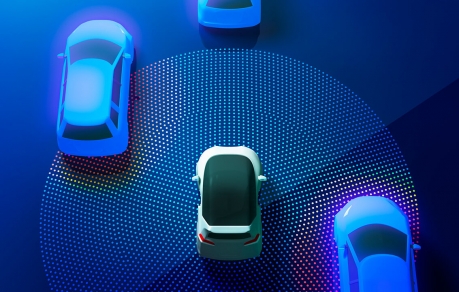DATE
3 min read •
Arthur D. Little Japan and Yamaha Motor have started collaboration on the application of SIBs (Social Impact Bonds) to the mobility sector

Arthur D. Little Japan, Inc. (hereinafter "ADL") and Yamaha Motor Co. (hereinafter "Yamaha Motor") have started a collaboration to study the application of a new financing scheme, "Social Impact Bonds (hereinafter "SIBs")," to implement a sustainable mobility society.
The environment surrounding mobility has entered a phase of change with the emergence of Mobility as a Service (MaaS), automated driving technology, and carbon neutrality initiatives. This trend will not only change the way we move around, but will also have an impact on the social system level, including the way people live and the shape of cities.
On the other hand, last mile mobility has become a major challenge due to the declining birth rate, ageing population, shortage of public transportation drivers, and the increasing number of people returning their driver's licenses. Yamaha Motor offers Green Slow Mobility (GSM), a low-speed electric vehicle that supports these regions. However, securing financial resources and operating rural mobility as a stand-alone project on an ongoing basis is fraught with difficulties. ADL and Yamaha Motor will therefore focus on SIBs, a new pay-for-performance financing scheme being promoted by the Japanese government, and will study the possibility of using this scheme to introduce and operate Yamaha Motor's GSMs and other vehicles.
SIBs is one of the mechanisms for public-private partnerships in which local governments outsource work to the private sector, with the amount of outsourcing varying based on the results of the service. It aims to reduce project costs while increasing effectiveness by utilizing private sector mechanisms. Unlike PFS (Pay for Success), which is a general pay-for-performance outsourcing program, one of the characteristics of SIBs is that the advance funds are invested by institutional investors and other investors.
While utilizing GSMs as a means of transportation for tourists on their round-trip tours and for the elderly, Yamaha Motor has realized that GSMs may have value beyond mere transportation. In order to clarify this, Yamaha Motor has been working to quantify the behavioral changes in the elderly that result from the introduction of GSM and the resulting health improvement effects, as well as to reduce CO2 emissions through the use of GSM. Through this collaboration, we aim to promote the spread of electric mobility, as typified by GSM, by incorporating the effects of health improvement and CO2 emission reduction as outcome indicators.
Since 2010, Arthur D. Little (ADL) has established a Future of Mobility Lab, acting as a global think thank on mobility future. In 2020, ADL Japan has established a local Mobility Lab, focusing on “mobility as a force for social good”, with the aim to contribute to achieving sustainable mobility goals, which is now moving into the implementation phase. The ADL Mobility Lab has been working to contribute to social innovations that start with mobility, by establishing a system that can better respond to the challenges of PoC and commercialization. Through this partnership, we will examine the potential for financial resources to secure mobility through new financing schemes, and support the integration of mobility and other industries and services, as well as the study of SIBs utilization, establishment, and social implementation in the cross-sector.
Going forward, ADL and Yamaha Motor will leverage their respective knowledge and networks to collaborate with a variety of mobility-related players to accelerate the transformation of the mobility industry.

3 min read •
Arthur D. Little Japan and Yamaha Motor have started collaboration on the application of SIBs (Social Impact Bonds) to the mobility sector

DATE

Arthur D. Little Japan, Inc. (hereinafter "ADL") and Yamaha Motor Co. (hereinafter "Yamaha Motor") have started a collaboration to study the application of a new financing scheme, "Social Impact Bonds (hereinafter "SIBs")," to implement a sustainable mobility society.
The environment surrounding mobility has entered a phase of change with the emergence of Mobility as a Service (MaaS), automated driving technology, and carbon neutrality initiatives. This trend will not only change the way we move around, but will also have an impact on the social system level, including the way people live and the shape of cities.
On the other hand, last mile mobility has become a major challenge due to the declining birth rate, ageing population, shortage of public transportation drivers, and the increasing number of people returning their driver's licenses. Yamaha Motor offers Green Slow Mobility (GSM), a low-speed electric vehicle that supports these regions. However, securing financial resources and operating rural mobility as a stand-alone project on an ongoing basis is fraught with difficulties. ADL and Yamaha Motor will therefore focus on SIBs, a new pay-for-performance financing scheme being promoted by the Japanese government, and will study the possibility of using this scheme to introduce and operate Yamaha Motor's GSMs and other vehicles.
SIBs is one of the mechanisms for public-private partnerships in which local governments outsource work to the private sector, with the amount of outsourcing varying based on the results of the service. It aims to reduce project costs while increasing effectiveness by utilizing private sector mechanisms. Unlike PFS (Pay for Success), which is a general pay-for-performance outsourcing program, one of the characteristics of SIBs is that the advance funds are invested by institutional investors and other investors.
While utilizing GSMs as a means of transportation for tourists on their round-trip tours and for the elderly, Yamaha Motor has realized that GSMs may have value beyond mere transportation. In order to clarify this, Yamaha Motor has been working to quantify the behavioral changes in the elderly that result from the introduction of GSM and the resulting health improvement effects, as well as to reduce CO2 emissions through the use of GSM. Through this collaboration, we aim to promote the spread of electric mobility, as typified by GSM, by incorporating the effects of health improvement and CO2 emission reduction as outcome indicators.
Since 2010, Arthur D. Little (ADL) has established a Future of Mobility Lab, acting as a global think thank on mobility future. In 2020, ADL Japan has established a local Mobility Lab, focusing on “mobility as a force for social good”, with the aim to contribute to achieving sustainable mobility goals, which is now moving into the implementation phase. The ADL Mobility Lab has been working to contribute to social innovations that start with mobility, by establishing a system that can better respond to the challenges of PoC and commercialization. Through this partnership, we will examine the potential for financial resources to secure mobility through new financing schemes, and support the integration of mobility and other industries and services, as well as the study of SIBs utilization, establishment, and social implementation in the cross-sector.
Going forward, ADL and Yamaha Motor will leverage their respective knowledge and networks to collaborate with a variety of mobility-related players to accelerate the transformation of the mobility industry.



